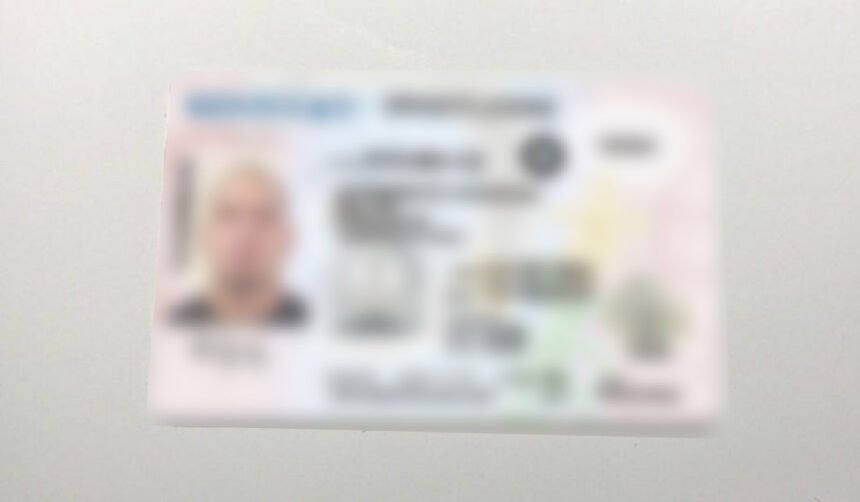Introduction
In today’s digitally driven society, the demand for forged identification has grown alongside the accessibility of online services. While legitimate ID verification processes have improved, so too have the abilities of underground vendors to replicate those documents. Among the most infamous names in the fake ID world is IDGod, a long-standing and widely discussed vendor known for delivering high-quality counterfeit identification documents across the globe. College students, underage partygoers, and even individuals seeking false documentation for more serious purposes have turned to IDGod as their go-to source.
This article explores the rise and continued operation of IDGod, delving into how the site operates, what it offers, the risks involved in using its services, and why legal alternatives are the smarter and safer route. We also look ahead at how technology may soon make the fake ID trade obsolete and why it matters that society pays attention to these changes.
The Origins of IDGod – From Forums to Fake ID Empire
The story of IDGod begins over a decade ago in the hidden corners of the internet—places like the dark web, Tor-based marketplaces, and encrypted forums where anonymity is paramount. At a time when fake ID demand was booming among college-age users, an earlier vendor called IDChief had gained widespread notoriety. When authorities eventually shut down IDChief, a vacuum was created in the underground market.
That’s when IDGod emerged as the new kingpin. With a reputation for precise craftsmanship and reliable delivery, IDGod’s brand quickly grew through word-of-mouth in Reddit threads, darknet review forums, and encrypted group chats. Despite multiple takedown attempts by law enforcement and domain seizures, IDGod managed to resurface under new URLs and platforms each time. Its adaptability and commitment to product quality allowed it to retain loyal customers and attract new ones, cementing its status as the most enduring figure in the fake ID ecosystem.
What Does IDGod Offer? The Anatomy of a Counterfeit ID
High-Fidelity Design Replication
What makes IDGod so appealing to its customer base is its near-perfect replication of legitimate state-issued IDs. Each card is designed using high-resolution template scans from real government-issued licenses. This ensures that elements like font size, spacing, background texture, and even microprint match the original. The vendor mimics ultra-fine details such as ultraviolet features, microtext, and perforation marks that are often used to validate genuine IDs. This attention to detail is what allows many of these fakes to pass even the close inspection of trained personnel.
Holographic and Security Features
Another signature of IDGod’s success is its use of layered holographic overlays and responsive lamination, which accurately reflect light when tilted—just like a real driver’s license or state ID. The inclusion of working magnetic strips and 2D barcodes that are encoded to match real data fields means that these IDs can often be swiped at scanners without triggering suspicion. The end product doesn’t just look like the real thing—it also functions like one in many common verification settings, particularly those used at nightclubs, convenience stores, or campus events.
Functional Utility
The level of detail in IDGod’s fake IDs has allowed many users to successfully use them at bars, liquor stores, festivals, and even hotel check-ins. These fakes can pass the backlight test, mimic the bending flexibility of genuine cards, and in some cases, even fool digital scanners at point-of-sale terminals. This operational realism is what keeps the vendor in high demand, especially in college towns, where the need to appear 21 has become more of a social requirement than a legal formality.
Discreet Packaging and Global Shipping
To further protect its operation, IDGod uses deceptive packaging techniques when delivering IDs across international borders. Orders are commonly shipped hidden within unrelated items such as boxes of chopsticks, tea sets, or fake jewelry boxes—often with secret compartments. These packages are then sent through multiple drop points, minimizing the chance of seizure by customs. The IDs arrive in a few weeks under plain packaging, often tracked through stealth links that mask the true contents. This clever shipping method is part of the reason many IDGod packages successfully make it through Border Patrol and into the hands of buyers.
Step-by-Step: How People Order from IDGod
Choosing the State or Province
One of the first steps in the ordering process is choosing which state’s ID you want. IDGod offers around 16 different U.S. states and some Canadian provinces, with California, New York, Illinois, and Florida being the most popular. These states are selected based on their design complexity, popularity among bouncers, and ease of passing undetected.
Customization and Upload
Customers are then required to upload a headshot taken against a white background, along with a scanned image of their signature and personal details such as height, eye color, and address. The system allows you to customize each field to match your own appearance and even tweak small details to reduce suspicion, such as choosing a believable name or address.
Payment Process
Transactions are completed using cryptocurrencies like Bitcoin, Litecoin, or Monero, which offer anonymity and untraceability. This makes it nearly impossible for law enforcement to tie payments to specific individuals. However, this also means customers cannot request refunds or file complaints—once payment is made, you’re committed.
Shipping and Tracking
Once the order is placed, the production and shipping process begins, which can take 7 to 21 business days. Buyers receive a tracking number masked through a third-party link that does not reveal package contents. The risk of customs seizure still exists, but IDGod’s stealth packaging aims to reduce that.
Legal Consequences of Buying or Using IDGod
Criminal Charges
| Offense | Potential Penalties |
|---|---|
| Possession of Fake ID | Misdemeanor or felony, up to $1,000 in fines, possible jail time |
| Using a Fake ID to Buy Alcohol | Additional charges, license suspension, mandatory alcohol education |
| Use for Employment or Travel | Federal fraud charges, deportation for non-citizens, criminal record |
Academic and Professional Fallout
Many colleges and universities treat the possession or use of fake IDs as grounds for suspension, expulsion, or loss of financial aid. If caught, students may also be reported to local police. In professional circles, being charged with using or owning a fake ID could lead to the revocation of licenses, job loss, or denial of entry into sensitive professions like healthcare, law, or finance.
Surveillance and Crackdowns
Law enforcement agencies and border control monitor the blockchain to trace cryptocurrency transactions. They also inspect suspicious shipments, especially around back-to-school seasons. Surveillance extends to internet forums, dark web markets, and even postal services, all in an effort to crack down on vendors like IDGod.
Scams and Imitators: The IDGod Impostors
Because of its reputation, many scam websites have popped up using the IDGod name or logo. These impersonators trick users into sending money and never deliver a product—or worse, they harvest personal data for identity theft. Common red flags include broken English, no encryption (no HTTPS), overly flashy designs, and promises that seem too good to be true. Customers are frequently warned: there is no safe way to buy a fake ID online, even if the vendor seems trusted.
A Cultural Phenomenon: Why Fake IDs Are So Popular
The College Town Demand
College students continue to be the largest demographic of fake ID users. Studies show that 60–66% of students have used a fake ID at least once to access alcohol, parties, or clubs. For many, it’s a “necessary accessory” for social life, especially in towns where nightlife revolves around 21+ venues.
Peer Pressure and FOMO
Group discounts offered by IDGod make it easy for friends to order together, lowering costs and boosting demand. The fear of missing out (FOMO) drives even cautious students to participate. When everyone in the friend group has a fake ID, the pressure to conform becomes immense.
The Ethics of Using IDGod – Beyond Just Breaking the Law
Although getting a fake ID may seem like a harmless rite of passage, it fuels global criminal networks involved in identity theft, fraud, and even human trafficking. There’s also the risk of your private information being stored and misused. Beyond legality, it’s a matter of supporting crime versus choosing integrity. Using fake IDs also puts others at risk, especially if used in medical emergencies, car rentals, or fraudulent employment applications.
Real Stories and Enforcement Crackdowns
Major Seizures by CBP
In a recent bust, over 500 fake IDs were seized by U.S. Customs and Border Protection, shipped in jewelry boxes and tea sets. These fakes came from both China and Canada, indicating a large-scale, organized operation. Border officials are increasingly aware of stealth shipping and have added extra layers of inspection during summer and fall, when students tend to order most frequently.
Undercover Stings in College Towns
Places like Bloomington, Indiana, have seen major crackdowns involving undercover excise officers stationed at bars. In one summer alone, 62 minors were caught using fakes at a popular nightclub. These efforts include training bouncers and bartenders on how to detect fraudulent IDs, highlighting how the war on fakes is intensifying.
Why Fake IDs Work: Lax Enforcement and Training Gaps
Despite increased scrutiny, fake IDs continue to work because of limited staff training. In the U.S., less than half the states require ID verification training for those who serve alcohol. Many employees are underpaid, overworked, and lack incentive to catch every detail. Some establishments turn a blind eye to maximize profits from underage patrons, knowing that more patrons equal more revenue—even if it means risking their liquor license.
Legal, Safe Alternatives to IDGod
DMV Non-Driver ID Cards
Anyone—regardless of age—can legally apply for a state-issued non-driver ID at their local DMV. It serves as proof of identity and can be used for age-restricted purchases like flights, housing, and more.
Passport or Passport Cards
A passport or passport card is universally accepted and backed by the federal government. While more expensive, it’s the safest and most respected form of ID.
Digital Verification Tools
For online purchases or verification needs, tools like ID.me, Jumio, and Yoti allow users to prove their identity and age using biometric data and encryption technology. These platforms are becoming standard in e-commerce, telehealth, and fintech.
Future of Fake ID Detection: Can Technology Beat IDGod?
The battle between fake ID vendors and authorities is escalating into a technological arms race. Modern scanning tools use UV, infrared, and AI-powered algorithms to detect anomalies in IDs. Blockchain is being explored as a solution for tamper-proof digital identities. The future may include a single, verified online identity linked to secure government databases, making IDGod-style operations much harder to sustain.
Final Verdict
While IDGod’s realism and reputation are undeniable, the risks it poses far outweigh any benefits. Between the legal consequences, identity theft risks, moral concerns, and possibility of scams, using a fake ID is ultimately a gamble with your future. The smarter move is to opt for legally valid identification, wait until you’re of legal age, or find social activities that don’t revolve around drinking. In the end, what you gain from IDGod is temporary, but what you risk could stay with you for life.
FAQs About IDGod
What is IDGod and what does it do?
IDGod is a well-known online vendor that creates and sells fake IDs. It provides counterfeit driver’s licenses and state IDs that look and function like real ones. These fake IDs are often used by underage individuals to enter bars, buy alcohol, or access age-restricted services.
Is it illegal to use a fake ID from IDGod?
Yes, using a fake ID from IDGod is illegal. It can lead to criminal charges such as misdemeanors or felonies, depending on how the ID is used. Common penalties include fines, jail time, loss of a real driver’s license, and even school or job consequences.
How do people buy from IDGod?
To buy from IDGod, people typically visit its website, choose a state ID, upload a photo and personal info, and pay with cryptocurrency like Bitcoin. The ID is then made in a few weeks and shipped in a hidden package. However, this process is risky and illegal.
Can IDGod fake IDs pass scanners and blacklight tests?
Many IDGod fake IDs are reported to pass scanner checks and blacklight tests at bars and clubs. They include barcodes, holograms, and UV features. However, new technology is making it easier for authorities to detect these fakes.
What are safer and legal alternatives to using IDGod?
Legal alternatives to using IDGod include getting a non-driver ID from the DMV, applying for a passport or passport card, or using digital ID verification apps like ID.me or Jumio. These options are 100% legal and widely accepted.
You May Also Read: MyLawyer360 Review: Fast & Free Way to Find Trusted Lawyers Online









